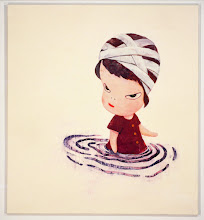1. Raise money and build fences for chained dogs in the communityNot unlike earlier humane movements in US and British history, the organization targets a practice that's disproportionately associated with working class people - which, here in Durham, also means people of color. What's interesting about the Coalition's approach is its emphasis on community outreach/support along with advocacy and education. Watching the YouTube testimonial below - and others like it on the group's website - I was struck by how clearly dog-chaining is presented as an economic issue, not just a moral or, worse, "cultural" one. As the dog owner in this video tells the interviewer (and us, the audience), people don't chain up their dogs because they are indifferent to animal well-being, but often because they can't afford to fence in their yard or provide other kinds of outdoor activities.
2. Provide support to and educate the community as to why chaining is cruel and dangerous and raise awareness of the physical, mental and emotional needs of dogs
3. Advocate for the passing of laws that disallow or severely restrict the chaining of dogs
It's interesting to contrast this mini-documentary with the Animal Cops reality show franchise on Animal Planet. Hydra-headed in the manner of CSI, the show has set up "precincts" in seven US cities: I've seen Animal Cops: Detroit, Animal Cops: Houston, and Animal Cops: Miami, but evidently there are shows based in New York, Philadelphia, Phoenix, and San Francisco as well. Having watched around 12-15 episodes in the series, my impression is that the you get a lot of graphic scenes of neglect and cruelty in urban neighborhoods, with very little context. The cop's-eye-view approach means that the pet owners who make it on screen are either criminal or abject or very often both. To me the Coalition's work - in the community as well as on the web - strikes a really heartening counterpoint.
* I have a very personal interest in the issue of chaining. About ten years ago we found one of our dogs Marley - the yellow one in these pictures - roaming the streets, bone thin, dragging a chain and combo lock. In a fit of Victoriana, Gary named him after Jacob Marley, whose ghost lumbers to a visitation with his old business partner Ebenezer Scrooge with a heavy iron chain "clasped about his middle... wound around him like a tail." (So no, despite his part-yellow lab phenotype, he's not named after that Marley.) To this day our Marley has fear aggression issues that may (or may not) be related to being tethered at some crucial developmental stage.







No comments:
Post a Comment